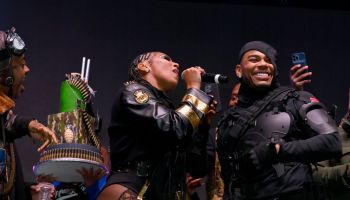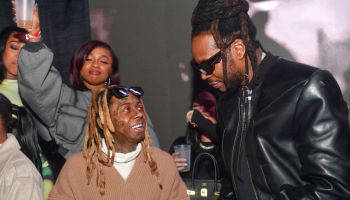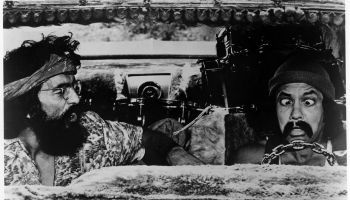It should come as no surprise that the Reverend Al Sharpton was featured as a prominent voice in the four-part series that aired this week on VH1 called “The Tanning of America: One Nation Under Hip Hop.”
Based on the best-selling book written by record executive Steve Stoute, the documentary brilliantly interrogates the many ways that hip hop has greatly impacted all aspects of American culture since it made its debut several decades ago.
Music, cinema and fashion have always reflected the shifting political, social and cultural current of our nation.
For example, when Sidney Poitier and Katharine Hepburn starred in the controversial 1967 American comedy drama “Guess Who’s Coming to Dinner,” the movie was widely hailed by cultural critics as an endorsement of racial integration, a sentiment that was being expressed at the time by the ideological teachings of Dr. Martin Luther King, Jr., and others who offered a sharp critique of Jim Crow segregation.
Similarly, the release of Aretha Franklin’s “R-E-S-P-E-C-T” later that same year, signaled the beginnings of the Black Power and the Black Arts Movement which had fully manifested itself throughout much of the country a year later when soul singer James Brown got folks moving to his iconic tune: “Say It Loud—I’m Black and I’m Proud.”
By the time Reverend Al Sharpton had made his accent to the national stage to become a household name, he had already spent much of the 1980s aggressively fighting against the insidiousness of racial profiling and police brutality which had become all too commonplace in New York City.
Equally important, was that Sharpton had developed a strong and abiding father-son relationship with Brown who understood, perhaps better than most, the keen importance of how music could in fact politicize an entire nation. Ironically, Brown would become a model for scores of hip hop artists like P. Diddy, Russell Simmons and Jay-Z who would become the gatekeepers and help to push the genre into the 21st century.
Thus, it’s no coincidence that Sharpton’s individual rise paralleled the burgeoning hip hop movement that had forcefully taken hold of the nation, as countless Black and Latino youth listened to Public Enemy’s dictum and unapologetically started to “Fight the Power.”
There was a growing restlessness in the country, following Ronald Reagan’s failed economic and social policies, and hip hop music, combined with Sharpton’s fierce and audacious activism, provided a collective voice for those who felt ignored.
Even Sharpton’s physical dress was reflective of the hip hop movement. While white (and some blacks) routinely mocked his colorful jogging suits (and the gold medallion that he draped around his neck which was given to him by Hosea Williams, an associate of Dr. Martin Luther King, Jr.) it’s important to note that many young people of color readily identified with his style. He wore the kinds of clothing that they were wearing and in the process—whether he wanted to or not—he became a champion for their cause.
Though Sharpton was born into a middle-class lifestyle and was steeped in the holiness church, he had enough street swagger and political courage that he was viewed as a rough-edged activist who embodied the very essence of the hip hop movement. Thus, he didn’t have to try to become a hip hop icon; he simply came to it organically.
Certainly, it’s one of the reasons why Spike Lee consistently referenced Sharpton in his 1989 movie Do the Right Thing, which provided hip hop with a centralized stage, even as Lee was pointing out the myriad of racial injustices that beset communities of color on a daily basis.
Even today, Sharpton’s connection to the hip hop community is undeniably strong. For he remains the only Black leader who can rally masses of young folks—the hip hop generation—to a worthy cause. Whether it’s Amadou Diallo, Sean Bell or Trayvon Martin, the hip hop generation has consistently headed his call and has made their voices heard through song and public protests.
Jamal Watson, Ph.D., is a senior writer for Diverse: Issues in Higher Education and is the author of the forthcoming biography about the Reverend Al Sharpton. He can be reached at jamal@jamalwatson.com
















